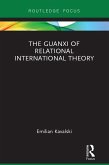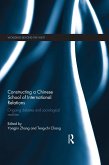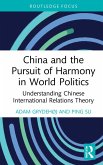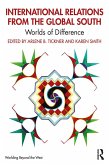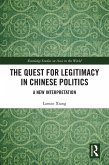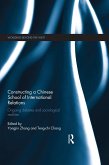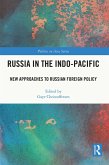1) it recovers a mode of IR theorizing as itinerant translation;
2) it deploys the concept and practices of guanxi (employed here as a heuristic device revealing the infinite capacity of international interactions to create and construct multiple worlds) to uncover the outlines of a relational IR theorizing; and
3) it demonstrates that relational theorizing is at the core of projects for worlding IR.
By engaging with the phenomenon of relationality, Emilian Kavalski invokes the complexity of possible worlds and demonstrates new possibilities for powerful ethical-political innovations in IR theorizing. Thus, relational IR theorizing emerges as an optic which both acknowledges the agency of 'others' in the context of myriad interpretative intersections of people, powers, and environments (as well as their complex histories, cultures, and agency) and stimulates awareness of the dynamically-intertwined contingencies through which meanings are generated contingently through interactions in communities of practice.
The book will have a strong appeal to the broad academic readership in Asian Studies, Political Science, Comparative Politics, International Relations theory and students and scholars of non-/post-Western International Relations and non-/post-Western Political Thought.
Dieser Download kann aus rechtlichen Gründen nur mit Rechnungsadresse in A, B, BG, CY, CZ, D, DK, EW, E, FIN, F, GR, HR, H, IRL, I, LT, L, LR, M, NL, PL, P, R, S, SLO, SK ausgeliefert werden.
"Emilian Kavalski critically assesses the way the 1815 'Congress of Vienna' has shaped Western Europe's perception of the world, and shows how China's re-emergence on the global stage challenges the way we usually make sense of this country's foreign policy. This is a thought-provoking work that shakes the fundaments of the field of international relations studies as it exists today." - Bart Dessein, Ghent University, Belgium



